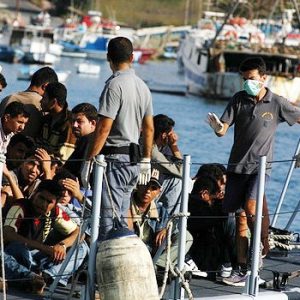Australia is now being scrutinized by the United Nations (UN) over its practice of sterilizing disabled persons and for its treatment of asylum seekers. Australia has been facing the ire of international humanitarian groups for awhile over its questionable actions. But now, the UN is finally calling for an end.
The issues are the hot topics at this week’s meeting of the United Nation’s Human Rights Council (UNHRC) forum being held in Geneva. Leading the charge against Australia is the United Kingdom, which is calling for “legislation to prohibit sterilization without consent from the individual”.
Australian law permits parents of disabled persons to make decisions regarding sterilization, and also allows court-issued sterilization orders. Both of these practices have attracted widespread criticism from international human rights groups for years.
Human Rights Watch calls the policy “alarming” and notes that one year ago the UN urged the Australian government to “take immediate steps to prohibit involuntary sterilization and provide assistance enabling people with disabilities to make decisions about their own lives”.
CEO of Women with Disabilities Australia (WWDA), Carolyn Frohmader, says Australia does not have any laws to prohibit the forced sterilization of women with disabilities, or children. She says forced sterilization falls under the UN’s “definition of torture”.
The group maintains no child should ever be sterilized and is lobbying for laws that only allow for the sterilization of women with disabilities to occur when there is “informed consent”.
Australia’s treatment of asylum seekers has also come under fire at the Geneva forum. Australia has received recommendations from 110 nations on how it can improve its human rights record of its treatment of refugee and its indigenous people. The U.S. called on Australia to “closely monitor” the offshore processing of refugees and asylum seekers.
The U.S. delegate said, “We encourage Australia to enter humane treatment and respect for the human rights of asylum seekers, including those processed offshore in Papua New Guinea and Nauru.”
Australia began turning back refugee boats after the 2013 election of the Liberal-National coalition government which maintains that attempts by asylum seekers to reach mainland Australia are dangerous and that Australian authorities have a duty to stop them. The immigrants are then rerouted to one of three detention centers.
In response, the Australian delegation says its border control policies have saved countless lives at sea, with parliament member Philip Ruddock saying that turning back refugee boats is necessary to save lives.
Stay Connected